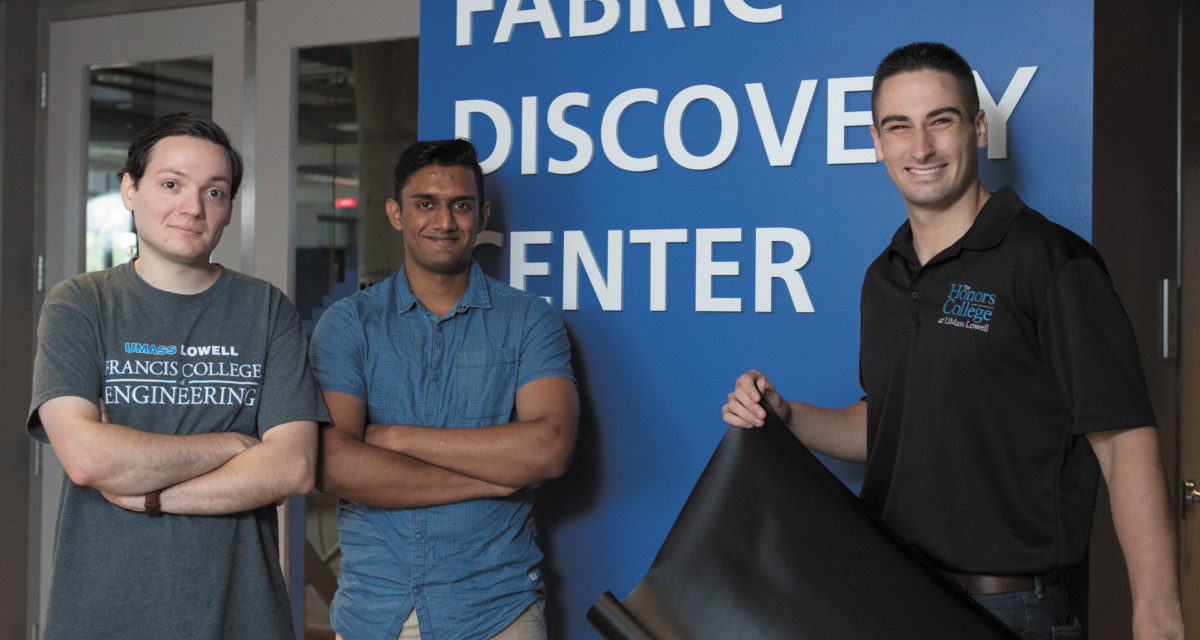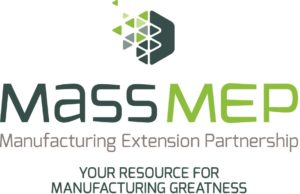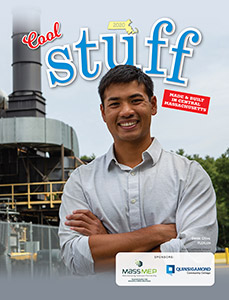Peter Perez is working with a solar panel company to solve a problem.
“The current industry standard protective backsheet is reducing the efficiency of solar power all over the world,” Perez said.
Perez is part of a team trying to build a better, more efficient backsheet to improve panels’ efficiency and safety. But Perez is not an employee of the company or an engineering consultant. He’s a 21-year old senior at the University of Massachusetts Lowell.
Fabric Discovery Center
Location: Lowell
College affiliation: UMass Lowell
Founded: 2018
Purpose: To engage companies, researchers and students in the design and pilot manufacturing of high-tech fabrics and wearable electronics
All over the state, students in college, graduate school and even high school are working with companies and university research departments solving real-world high-tech problems under a broad umbrella known as Manufacturing USA.
Founded by the federal government in 2012, Manufacturing USA – previously called the National Network for Manufacturing Innovation – consists of 14 institutes bringing together industry and education partners. The state of Massachusetts has chosen to invest in four of them, and some universities in the state participate in some of the 10 other institutes.
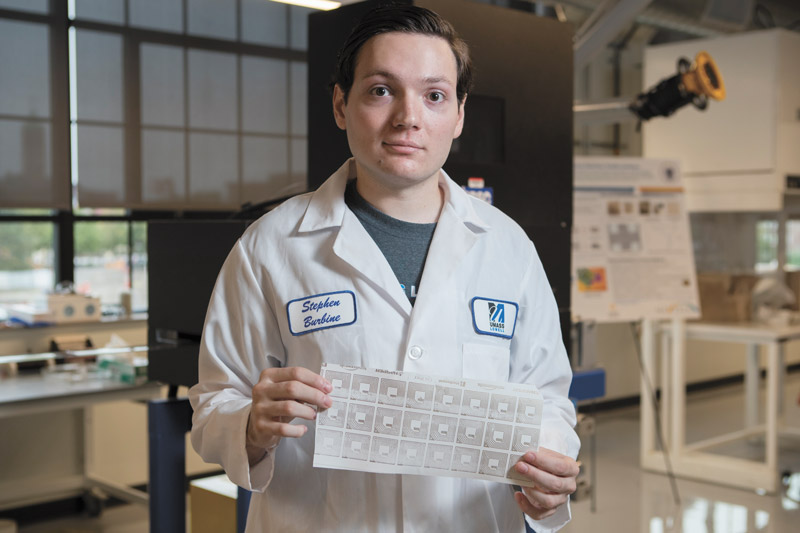
Stephen Burbine is working with materials at the Fabric Discovery Center to put sensors in clothes.
Next-generation products
Perez is part of the Fabric Discovery Center at UMass Lowell, which opened this July. The center brings together three of the Manufacturing USA institutes: Cambridge-based Advanced Functional Fabrics of America, which is the only one of the institutes headquartered in Massachusetts, as well as Advanced Robotics for Manufacturing (ARM), and NextFlex, the flexible electronics institute.
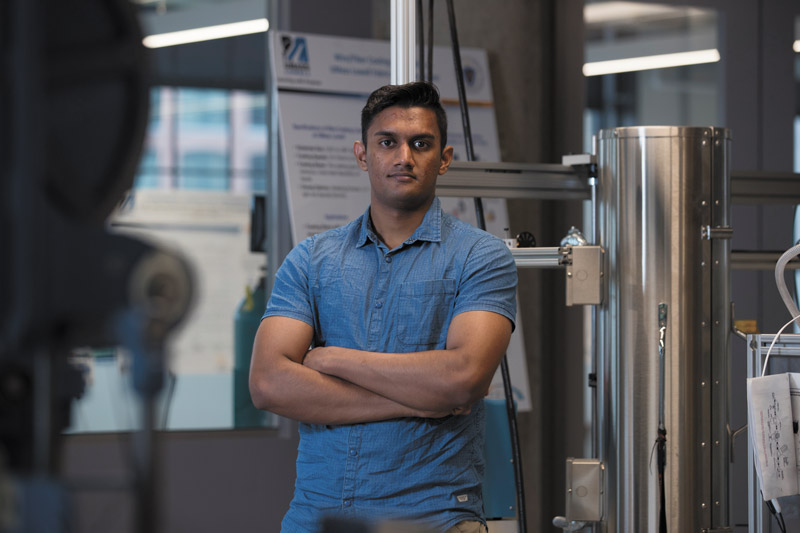
Siddhant Iyer works on plastics engineering and junior organic photovoltaics for wire coatings.
Ramaswamy Nagarajan, who helps lead the research at the center, said the point is to develop next-generation products like wearable electronics, temperature-resistant fabrics and wound-healing medical textiles, along with the automated production processes to make it practical to manufacture them in the U.S.
“The whole thing has been awesome all around,” Perez said, “To take experiments or results you get and then practically apply it to a product that’s being sold and marketed all around the world.”
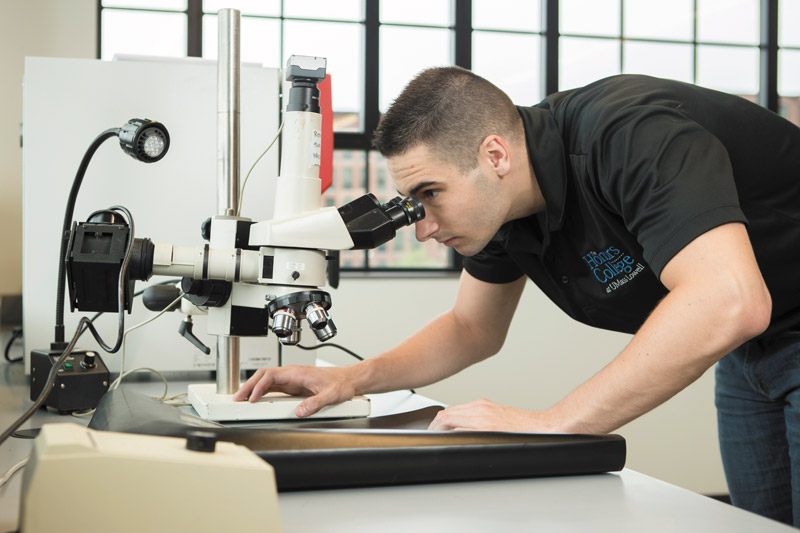
Peter Perez uses the Fabric Discovery Center to try and solve solar panel problems.
Stephen Burbine, a 23-year-old graduate student who’s also working at the center in Lowell, said he’s been doing hands-on manufacturing tasks, creating new kinds of materials to be used to make flexible antennas or clothing with sensors. Burbine said he’s looking forward to a career as a plastics engineer, and he’s found working at the center, with its industry partners and state-of-the-art equipment, a worthwhile and challenging experience.
“Doing research is great,” he said. “You really have to be on your game.”
For Stuart Daudlin, a 22-year-old who graduated from the University of Michigan with a degree in engineering physics earlier this year, taking part in a Manufacturing USA program this summer was a step toward his goal of working in manufacturing.
“I was always interested in building new things – Legos as a kid,” he said. “I like to build things and see how they can affect other people and society.” ■

